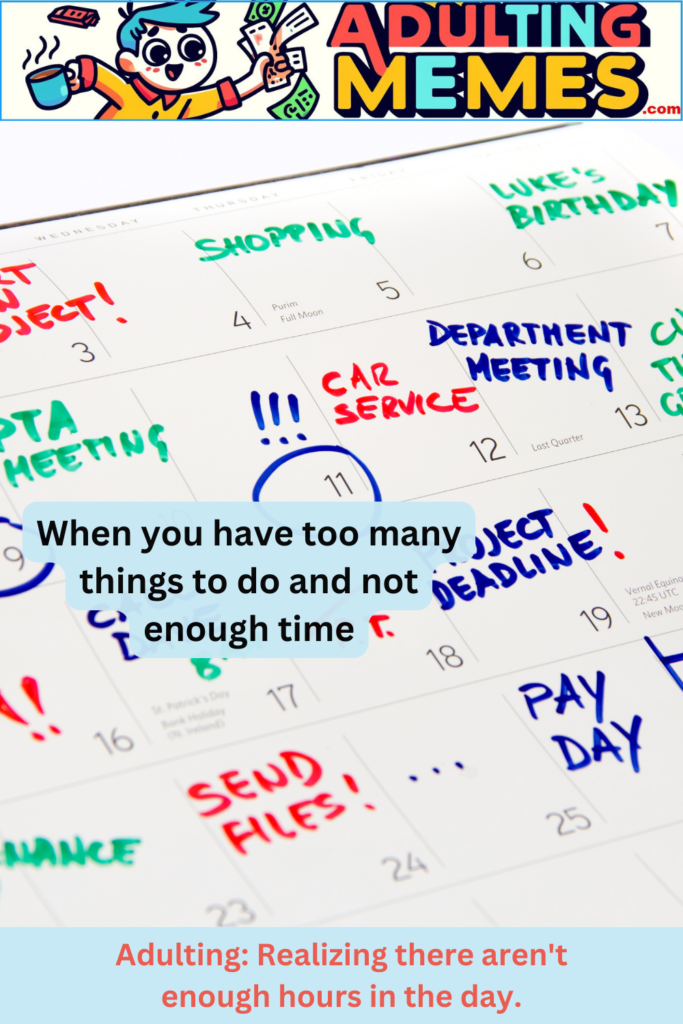Contributor
How to Recharge After a Busy Week
 The Art of Weekend Recovery: How to Recharge After a Busy Week
The Art of Weekend Recovery: How to Recharge After a Busy Week
After a long week filled with work, errands, and adult responsibilities, it’s common to feel completely drained. Many of us use the weekend to recover and recharge. If you find yourself needing the entire weekend to bounce back, here are some tips to help you make the most of your downtime and start the new week feeling refreshed and energized.
Why Recovery is Important
- Mental Health: Taking time to relax and unwind is crucial for maintaining mental health and preventing burnout.
- Physical Health: Rest allows your body to recover from the physical and emotional stresses of the week.
- Productivity: Recharging over the weekend can boost your productivity and focus during the week.
- Work-Life Balance: Properly using weekends to recover helps maintain a healthy balance between work and personal life.
Tips for Effective Weekend Recovery
Here are practical strategies to help you recover effectively over the weekend:
- Prioritize Sleep: Make sure to get enough sleep over the weekend. Catch up on rest and establish a regular sleep schedule to feel more refreshed.
- Unplug from Work: Disconnect from work-related emails and tasks. Use the weekend to focus on yourself and your personal life.
- Engage in Relaxing Activities: Do activities that help you relax and recharge. This could be reading a book, watching a movie, taking a walk, or practicing a hobby.
- Practice Self-Care: Dedicate time to self-care routines, such as taking a long bath, meditating, or practicing yoga. Self-care helps reduce stress and improve overall well-being.
- Spend Time Outdoors: Fresh air and nature can do wonders for your mood and energy levels. Spend time outdoors, whether it’s hiking, gardening, or just sitting in the park.
- Socialize with Loved Ones: Connect with friends and family. Positive social interactions can boost your mood and help you feel more supported.
- Plan and Organize: Use a small part of your weekend to plan for the upcoming week. Organizing your tasks can reduce stress and make you feel more prepared.
- Stay Active: Incorporate light physical activity into your weekend. Exercise releases endorphins, which can improve your mood and energy levels.
Creating a Weekend Routine
To maximize your recovery time, consider establishing a weekend routine that includes the following elements:
- Relaxation Time: Schedule specific times for relaxation and self-care activities.
- Social Time: Plan social activities with friends or family to stay connected.
- Physical Activity: Incorporate some form of exercise or outdoor activity.
- Planning Time: Set aside a small amount of time to plan and organize for the upcoming week.
- Personal Projects: Work on personal projects or hobbies that you enjoy and find fulfilling.
Avoiding Common Pitfalls
To ensure your weekend recovery is effective, avoid these common pitfalls:
- Overloading Your Schedule: Avoid packing your weekend with too many activities. Give yourself time to rest and relax.
- Staying Up Too Late: Maintain a regular sleep schedule, even on weekends. Staying up too late can disrupt your sleep pattern and leave you feeling tired.
- Procrastinating: Don’t leave all your chores and errands for Sunday night. Spread them out over the weekend to avoid stress.
- Ignoring Self-Care: Make self-care a priority. Neglecting self-care can lead to burnout and reduce your ability to recover.
Spending weekends recovering from the week’s responsibilities is essential for maintaining your mental and physical health. By prioritizing sleep, engaging in relaxing activities, practicing self-care, and establishing a balanced routine, you can make the most of your weekends and start the new week feeling refreshed and energized. Remember, successful adulting involves finding time to recharge and take care of yourself.
By following these tips, you’ll be better equipped to use your weekends effectively for recovery and relaxation. No more feeling drained—just a refreshed and ready start to the week!
Tips for Dealing with Messy Roommates
Young Adult Tips for Efficient Shopping
 How to Avoid Forgetting Items on Your Grocery Trips: Tips for Efficient Shopping
How to Avoid Forgetting Items on Your Grocery Trips: Tips for Efficient Shopping
Forgetting the one thing you went to the grocery store for is a common and frustrating experience. It often leads to multiple trips, wasting time and energy. If you frequently find yourself in this situation, here are some tips to help you stay organized and ensure you get everything you need in one trip.
Why We Forget Items
- Lack of a List: Shopping without a list makes it easy to forget important items.
- Distractions: Busy stores, phone notifications, and other distractions can make you lose focus.
- Mental Overload: Trying to remember too many things at once can lead to forgetting key items.
- Unplanned Shopping: Impromptu trips without preparation often result in forgotten items.
Tips for Efficient Grocery Shopping
Here are practical strategies to help you avoid forgetting items and make your grocery trips more efficient:
- Make a Comprehensive List: Before you head to the store, make a detailed shopping list. Include all the items you need and group them by category (e.g., produce, dairy, pantry staples) to make shopping easier.
- Use a Shopping App: Consider using a grocery shopping app that allows you to create and manage your list digitally. Apps like AnyList, OurGroceries, and Google Keep can help you stay organized and even share lists with family members.
- Plan Your Meals: Meal planning helps you determine exactly what ingredients you need for the week. This reduces the chances of forgetting items and prevents impulse buys.
- Stick to Your List: Once you have your list, stick to it. Avoid the temptation to buy unnecessary items, which can distract you from your main goals.
- Check Inventory Before You Go: Before heading to the store, check your pantry, fridge, and freezer to see what you already have. This helps you avoid buying duplicates and ensures you know exactly what you need.
- Keep a Running List: Keep a running list in your kitchen where you can jot down items as soon as you realize you need them. This makes sure nothing is forgotten by the time you go shopping.
- Shop at a Consistent Time: Try to shop at the same time each week. Routine shopping trips can help you stay organized and remember everything you need.
- Minimize Distractions: Focus on your shopping. Put your phone on silent, avoid peak hours, and concentrate on your list to ensure you don’t get sidetracked.
What to Do If You Forget an Item
Despite your best efforts, forgetting an item can still happen. Here’s what to do:
- Assess Urgency: Determine if the forgotten item is essential. If it can wait, add it to your next shopping list.
- Local Alternatives: If the item is urgent, check if a nearby convenience store or a quick delivery service can provide it.
- Adjust Your Plan: Sometimes, you can adjust your meal plan or use a substitute ingredient until your next shopping trip.
Benefits of Efficient Grocery Shopping
Effective grocery shopping has several benefits:
- Saves Time: Reducing the number of trips saves time and effort.
- Saves Money: Sticking to a list helps avoid impulse buys and unnecessary spending.
- Reduces Stress: Knowing you have everything you need for the week can reduce stress and make meal preparation smoother.
- Promotes Healthier Choices: Planned shopping trips make it easier to stick to a healthy eating plan.
Forgetting items on your grocery trips can be frustrating, but with a few simple strategies, you can stay organized and efficient. By making a comprehensive list, using apps, planning your meals, and sticking to your routine, you can ensure you get everything you need in one trip. Remember, successful adulting involves planning and organization. Happy shopping!
By following these tips, you’ll be better equipped to manage your grocery shopping and avoid multiple trips to the store. No more forgetting items—just efficient and stress-free shopping!
Managing Subscriptions Like a Pro
 Managing Subscriptions Like a Pro: Tips for Staying Organized and Saving Money
Managing Subscriptions Like a Pro: Tips for Staying Organized and Saving Money
In today’s digital age, it’s easy to accumulate multiple subscriptions, from streaming services and gym memberships to meal kits and magazine deliveries. While these subscriptions can enhance our lives, they can also become overwhelming and costly if not managed properly. If you find yourself losing track of subscriptions and struggling to manage them, here are some tips to help you stay organized and save money.
The Subscription Overload Problem
- Too Many to Track: With numerous subscriptions, it’s easy to forget what you’re signed up for and when payments are due.
- Hidden Costs: Small recurring fees can add up quickly, impacting your budget.
- Underutilization: You might be paying for services you rarely use, leading to wasted money.
- Difficulty Cancelling: Some subscriptions have complicated cancellation processes, making it hard to stop unwanted services.
Tips for Managing Subscriptions Effectively
Here are practical strategies to help you manage your subscriptions like a pro:
- Create a Subscription List: Make a comprehensive list of all your subscriptions, including their costs, billing cycles, and renewal dates. Use a spreadsheet or a subscription management app to keep everything organized.
- Set Up Reminders: Use your phone or calendar to set reminders for renewal dates and free trial end dates. This helps you avoid unexpected charges and allows you to cancel subscriptions on time.
- Regularly Review Subscriptions: Every few months, review your list of subscriptions. Assess which ones you use regularly and which ones you can do without. Cancel any that are no longer serving you.
- Bundle Services: Look for opportunities to bundle services. Some companies offer discounts when you subscribe to multiple services together, such as streaming platforms or internet and TV packages.
- Negotiate Rates: Contact service providers to negotiate better rates. Many companies offer promotional rates or discounts to retain customers.
- Use Free Trials Wisely: Take advantage of free trials to test out services before committing. Just be sure to set a reminder to cancel before the trial ends if you decide not to continue.
- Monitor Your Bank Statements: Regularly check your bank statements for subscription charges. This helps you spot any unauthorized or forgotten subscriptions.
- Automate Payments: Set up automatic payments for subscriptions you plan to keep. This ensures you don’t miss any payments and helps maintain your credit score.
Subscription Management Tools
To make managing subscriptions easier, consider using these tools:
- Subscription Management Apps: Apps like Truebill, Trim, and Subby help you track, manage, and cancel subscriptions in one place.
- Budgeting Apps: Budgeting apps like Mint and YNAB (You Need a Budget) can help you keep track of all your expenses, including subscriptions.
- Bank Alerts: Many banks offer alert services that notify you of recurring charges, helping you stay on top of your subscriptions.
Maximizing Subscription Value
To get the most out of your subscriptions, follow these tips:
- Use What You Pay For: Make a conscious effort to use the services you subscribe to. Set aside time to watch those shows, read those magazines, or attend those classes.
- Share Subscriptions: Some services allow family or friend sharing. Split the cost with others to save money while still enjoying the benefits.
- Stay Informed: Keep an eye out for new features, promotions, or changes to your subscriptions. Sometimes services add value that you might not be aware of.
Managing subscriptions effectively can save you money, reduce stress, and ensure you’re getting the most out of the services you pay for. By staying organized, setting reminders, and regularly reviewing your subscriptions, you can take control of your recurring expenses. Remember, successful adulting involves making smart financial decisions and staying on top of your commitments.
By following these tips, you’ll be better equipped to manage your subscriptions like a pro, keeping your budget in check and your life organized. No more subscription overwhelm—just savvy and efficient management!
Meal Planning for Young Adults
 The Reality of Meal Planning: Balancing Homemade Meals and Takeout
The Reality of Meal Planning: Balancing Homemade Meals and Takeout
Meal planning is a great strategy to save time, money, and eat healthier. However, despite the best intentions, life often gets in the way, and many of us find ourselves opting for takeout instead. If you’ve tried to meal plan but often end up ordering takeout, you’re not alone. Here’s a guide to balancing homemade meals with the convenience of takeout and making both work for you.
Why Meal Planning is Challenging
- Busy Schedules: Finding time to cook amidst a hectic schedule can be difficult.
- Lack of Cooking Skills: Not everyone feels confident in the kitchen, leading to reliance on takeout.
- Unexpected Events: Last-minute plans or changes can throw off your meal planning.
- Cravings and Preferences: Sometimes, you simply crave something different than what’s planned.
Tips for Effective Meal Planning
Here are some strategies to help you stick to your meal plan while still enjoying the flexibility of takeout:
- Start Simple: Begin with simple recipes that don’t require much time or skill. Gradually add more complex dishes as you gain confidence.
- Plan for Flexibility: Include a few flexible meal options that can be quickly prepared if plans change. Items like pasta, stir-fries, and salads are quick and versatile.
- Batch Cook: Cook larger portions of meals and freeze leftovers for future use. This can save time and provide ready-to-eat meals on busy days.
- Incorporate Takeout: Plan one or two nights a week for takeout. This can give you a break from cooking and keep your meal plan realistic.
- Prep in Advance: Spend some time prepping ingredients in advance. Chop vegetables, marinate meats, and portion out snacks to make cooking faster and easier.
- Keep Essentials Stocked: Always have pantry staples like rice, pasta, canned beans, and frozen veggies on hand. These can be used to create quick meals when needed.
- Use a Meal Planning App: Utilize apps that help you organize your meal plan, generate shopping lists, and suggest recipes based on ingredients you have.
Embracing Takeout as Part of Your Meal Plan
Takeout doesn’t have to derail your meal plan. Here’s how to make it work for you:
- Choose Healthier Options: Opt for healthier takeout choices like salads, grilled proteins, and vegetable-based dishes.
- Watch Portions: Be mindful of portion sizes. Consider splitting large portions into multiple meals.
- Balance Nutrients: Pair takeout meals with homemade sides like a fresh salad or steamed vegetables to balance your meal.
- Limit Frequency: Keep takeout as an occasional treat rather than a daily habit. This helps maintain a balance between homemade meals and convenience.
Making the Most of Both Worlds
To successfully balance meal planning and takeout, consider these additional tips:
- Mix and Match: Combine homemade components with takeout. For example, make a homemade soup and pair it with a sandwich from your favorite deli.
- Stay Organized: Keep track of your meal plan and takeout days on a calendar. This helps you stay organized and aware of your eating habits.
- Reflect and Adjust: Periodically review your meal planning strategy. Identify what works and what doesn’t, and adjust accordingly to fit your lifestyle.
Meal planning is a valuable tool for managing your diet and lifestyle, but it’s important to stay flexible and realistic. By incorporating takeout into your meal plan, you can enjoy the convenience without compromising your goals. Remember, the key to successful adulting is finding a balance that works for you. Embrace both homemade meals and takeout as part of your overall meal strategy.
By following these tips, you’ll be better equipped to manage your meal planning and enjoy the best of both worlds. No more guilt about ordering takeout—just a balanced and practical approach to eating well!
Tips for Making Calls with Confidence
 Overcoming Phone Call Anxiety: Tips for Making Calls with Confidence
Overcoming Phone Call Anxiety: Tips for Making Calls with Confidence
Making phone calls is a common adulting task that can cause anxiety for many young adults. Whether it’s calling to schedule an appointment, inquire about a job, or handle a customer service issue, the thought of picking up the phone can be daunting. If you experience phone call anxiety, here are some tips to help you overcome it and make calls with confidence.
Why Phone Call Anxiety Happens
- Fear of Judgment: Worrying about saying the wrong thing or being judged by the person on the other end.
- Uncertainty: Not knowing how the conversation will go or what to expect can cause anxiety.
- Lack of Practice: With the rise of texting and emailing, many people are simply out of practice with phone calls.
- Negative Past Experiences: Previous awkward or uncomfortable phone calls can contribute to anxiety.
Tips to Overcome Phone Call Anxiety
Here are practical strategies to help you manage your anxiety and make phone calls more confidently:
- Prepare in Advance: Write down key points or questions you want to address during the call. Having a script can help you stay focused and reduce anxiety.
- Practice: Practice your phone call with a friend or family member. Role-playing can help you feel more comfortable and prepared.
- Deep Breathing: Before making the call, take a few deep breaths to calm your nerves. Deep breathing can reduce anxiety and help you stay focused.
- Start Small: Begin with less intimidating calls, such as ordering takeout or making a casual call to a friend. Gradually work your way up to more challenging calls.
- Positive Visualization: Visualize the call going well and imagine yourself speaking confidently. Positive visualization can boost your confidence and reduce anxiety.
- Use a Comfortable Environment: Make the call from a place where you feel comfortable and won’t be interrupted. A quiet, private space can help you concentrate.
- Take Notes: Keep a notepad handy to jot down important points during the call. This can help you stay organized and ensure you don’t forget anything.
- Focus on the Purpose: Remind yourself of the reason for the call and focus on achieving your goal. This can help you stay motivated and reduce anxiety.
Practical Steps for Making a Phone Call
To help you navigate the process, here’s a step-by-step guide for making a phone call:
- Plan Your Call: Decide on the main points you need to discuss and write them down. Prepare any necessary information or documents.
- Choose a Good Time: Make the call when you’re not rushed and can give it your full attention. Avoid calling during busy or inconvenient times.
- Introduce Yourself: Start the call by introducing yourself and stating the purpose of your call clearly.
- Listen Actively: Pay attention to the other person’s responses and take notes if necessary. Active listening helps you respond appropriately and keep the conversation on track.
- Ask Questions: If you need clarification or more information, don’t hesitate to ask questions. This shows you’re engaged and interested.
- End Politely: Wrap up the call by thanking the person for their time and confirming any next steps. A polite and professional ending leaves a good impression.
Building Confidence Over Time
Overcoming phone call anxiety takes practice and patience. Here are some long-term strategies to build your confidence:
- Make Regular Calls: Incorporate making phone calls into your routine. The more you practice, the more comfortable you’ll become.
- Reflect on Successes: After each call, reflect on what went well and what you can improve. Celebrate your successes and learn from each experience.
- Seek Support: Talk to friends or family members about your anxiety. They can offer support, encouragement, and tips from their own experiences.
- Stay Positive: Keep a positive attitude and remind yourself that it’s okay to make mistakes. Each call is an opportunity to learn and grow.
Phone call anxiety is common, but with the right strategies and practice, you can overcome it and make calls with confidence. By preparing in advance, starting small, and focusing on the purpose of the call, you can reduce anxiety and communicate effectively. Remember, the key to successful adulting is facing challenges head-on and building your skills one step at a time.
By following these tips, you’ll be better equipped to handle phone calls and overcome anxiety. No more fear of the phone—just confident and effective communication!
Haircare Tips for Young Adults
 When DIY Goes Wrong: The Case for Professional Services
When DIY Goes Wrong: The Case for Professional Services
Cutting your own hair to save money might seem like a good idea—until it goes wrong. Many young adults have attempted to trim their locks only to end up with an uneven, regrettable haircut. While DIY projects can be rewarding and cost-effective, there are some tasks best left to professionals. Here’s why investing in professional services can save you time, money, and stress in the long run.
The Risks of DIY Haircuts
- Lack of Skill and Technique: Professional hairstylists have training and experience that most of us don’t. Achieving a balanced and stylish cut requires skill and technique.
- Inappropriate Tools: Using household scissors or dull tools can lead to uneven cuts and damage to your hair.
- Limited Perspective: Cutting your own hair means working with limited angles and perspectives, making it hard to see and reach all areas effectively.
- Potential Damage: Mistakes can lead to split ends, uneven lengths, and an overall unsatisfactory appearance, often requiring professional correction later.
Benefits of Professional Haircuts
Investing in a professional haircut has several benefits:
- Expertise and Precision: Hairstylists understand different hair types, face shapes, and styles, ensuring you get a cut that suits you.
- Quality Tools: Professionals use high-quality tools designed specifically for hair cutting, which helps achieve a clean and precise cut.
- Advice and Maintenance: Stylists can offer personalized advice on hair care and maintenance, helping you keep your hair healthy and stylish between cuts.
- Consistency: Regular visits to a professional ensure your hair remains well-groomed and prevents the need for drastic corrections.
When to Choose Professional Services
While DIY can be fun and budget-friendly, here are some services where professional help is often worth the investment:
- Haircuts and Coloring: For precision, style, and safety, professional hairstylists are the way to go.
- Plumbing and Electrical Work: These tasks can be dangerous and complicated. Professionals ensure safety and compliance with regulations.
- Medical and Dental Care: Always seek professional care for health-related issues to avoid complications and ensure proper treatment.
- Legal Advice: Lawyers and legal experts can provide accurate advice and representation, which is crucial for legal matters.
Tips for Smart DIY Projects
For tasks you decide to handle yourself, follow these tips to ensure success:
- Research and Prepare: Educate yourself thoroughly about the task. Watch tutorials, read guides, and understand the necessary steps and tools.
- Use Proper Tools: Invest in the right tools for the job. Quality tools can make a significant difference in the outcome.
- Start Small: Begin with small, manageable projects to build your confidence and skills.
- Know Your Limits: Recognize when a task is beyond your expertise and seek professional help when needed.
While DIY projects can be a great way to save money and learn new skills, some tasks are best left to professionals. Haircuts, plumbing, electrical work, and health care are areas where professional expertise can prevent costly mistakes and ensure quality results. By making smart decisions about when to DIY and when to invest in professional services, you can achieve the best outcomes for your time, money, and well-being.
By following these guidelines, you can enjoy the benefits of DIY while avoiding the pitfalls of attempting tasks better suited for professionals. Remember, successful adulting often involves knowing when to seek expert help.
Laundry Tips for Busy Young Adults
 How to Avoid Running Out of Clean Clothes: Laundry Tips for Busy Adults
How to Avoid Running Out of Clean Clothes: Laundry Tips for Busy Adults
We’ve all had those days when we realize there are no clean clothes left, leading to some questionable fashion choices. Managing laundry can be a challenge, especially with a busy schedule. If you frequently find yourself in this situation, here are some tips to help you stay on top of your laundry and keep your wardrobe ready for any occasion.
Why Laundry Piles Up
- Busy Schedules: Juggling work, school, and personal life can make it hard to find time for laundry.
- Procrastination: Putting off laundry can lead to a mountain of clothes that feels overwhelming.
- Limited Access: If you rely on shared laundry facilities, finding a convenient time can be difficult.
- Lack of Routine: Without a consistent laundry routine, it’s easy to fall behind.
Tips for Staying on Top of Laundry
Here are practical strategies to help you manage your laundry more effectively:
- Create a Laundry Schedule: Designate specific days for laundry each week. Consistency helps make it a regular part of your routine.
- Do Smaller Loads Frequently: Instead of waiting for a huge pile to accumulate, do smaller loads more often. This makes the task less daunting and keeps your clothes in rotation.
- Sort as You Go: Use separate hampers for whites, colors, and delicates. Sorting as you go saves time when it’s time to do laundry.
- Use a Timer: Set a timer to remind you to switch loads from the washer to the dryer. This helps avoid forgotten loads that need to be rewashed.
- Invest in Quality Laundry Supplies: Use a good detergent, stain remover, and fabric softener to keep your clothes looking their best. This reduces the need for special care items and streamlines the process.
- Fold and Put Away Immediately: As soon as your clothes are dry, fold them and put them away. This prevents wrinkles and keeps your space tidy.
- Multi-Task: Use laundry time to catch up on other tasks. Fold clothes while watching TV or listening to a podcast.
- Get Help When Needed: If you live with roommates or family, share the laundry responsibilities. Teamwork can make the task quicker and more manageable.
Dealing with Limited Laundry Facilities
If you rely on shared or limited laundry facilities, try these tips:
- Plan Ahead: Schedule your laundry during less busy times, like early mornings or weekdays.
- Use a Laundry Service: Consider using a laundry service for washing, drying, and folding if your schedule is particularly tight.
- Maximize Loads: Make the most of each load by washing full but not overloaded batches of clothes.
Handling Emergency Situations
For those times when you’ve run out of clean clothes and need a quick fix, try these solutions:
- Hand Wash Essentials: Hand wash a few essential items in the sink and hang them to dry.
- Quick Freshen-Up: Use a fabric refresher spray or steam your clothes to remove wrinkles and odors.
- Layer Creatively: Mix and match clean pieces with less obvious repeat items to create new outfits.
Staying on top of your laundry doesn’t have to be a daunting task. By establishing a routine, doing smaller loads frequently, and using efficient strategies, you can keep your wardrobe in check and avoid those days of questionable fashion choices. Remember, the key to successful adulting is finding a balance that works for you and staying organized. Happy laundering!
By following these tips, you’ll be better equipped to manage your laundry and ensure you always have clean clothes ready to wear. No more last-minute fashion crises—just a well-maintained wardrobe!
How to Stay Productive Without Internet Access
Time Management Tips for Young Adults
- How to Recharge After a Busy Week
- Tips for Dealing with Messy Roommates
- Young Adult Tips for Efficient Shopping
- Managing Subscriptions Like a Pro
- Meal Planning for Young Adults
- Tips for Making Calls with Confidence
- Haircare Tips for Young Adults
- Laundry Tips for Busy Young Adults
- How to Stay Productive Without Internet Access
- Time Management Tips for Young Adults


